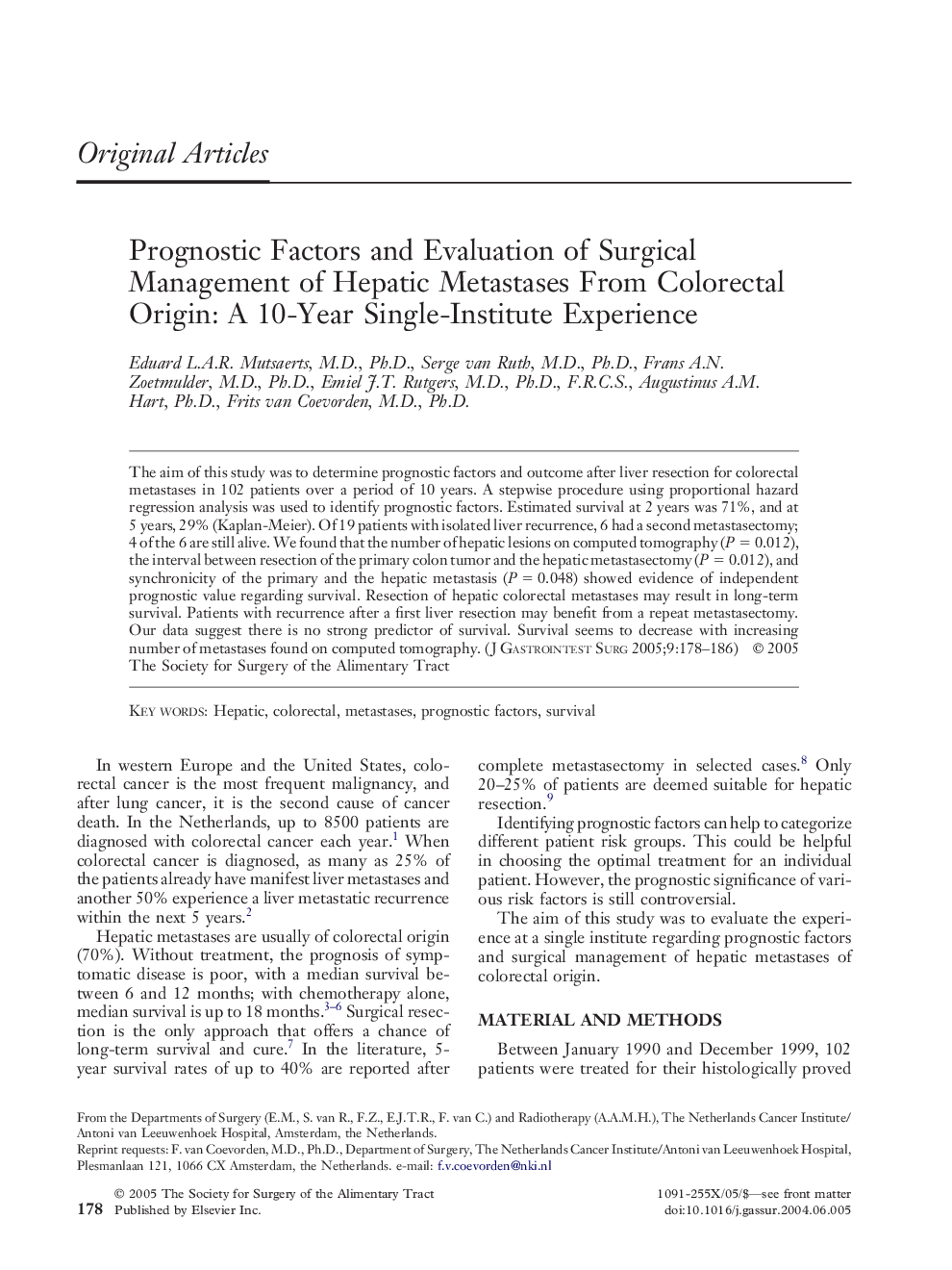| Article ID | Journal | Published Year | Pages | File Type |
|---|---|---|---|---|
| 9401477 | Journal of Gastrointestinal Surgery | 2005 | 9 Pages |
Abstract
The aim of this study was to determine prognostic factors and outcome after liver resection for colorectal metastases in 102 patients over a period of 10 years. A stepwise procedure using proportional hazard regression analysis was used to identify prognostic factors. Estimated survival at 2 years was 71%, and at 5 years, 29% (Kaplan-Meier). Of 19 patients with isolated liver recurrence, 6 had a second metastasectomy; 4 of the 6 are still alive. We found that the number of hepatic lesions on computed tomography (PÂ =Â 0.012), the interval between resection of the primary colon tumor and the hepatic metastasectomy (PÂ =Â 0.012), and synchronicity of the primary and the hepatic metastasis (PÂ =Â 0.048) showed evidence of independent prognostic value regarding survival. Resection of hepatic colorectal metastases may result in long-term survival. Patients with recurrence after a first liver resection may benefit from a repeat metastasectomy. Our data suggest there is no strong predictor of survival. Survival seems to decrease with increasing number of metastases found on computed tomography.
Related Topics
Health Sciences
Medicine and Dentistry
Surgery
Authors
Eduard L.A.R. M.D., Ph.D., Serge M.D., Ph.D., Frans A.N. M.D., Ph.D., Emiel J.T. M.D., Ph.D., F.R.C.S., Augustinus A.M. Ph.D., Frits M.D., Ph.D.,
